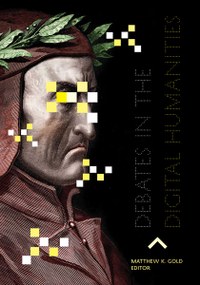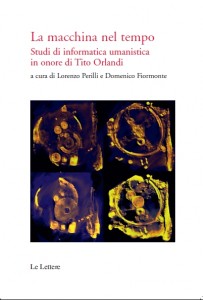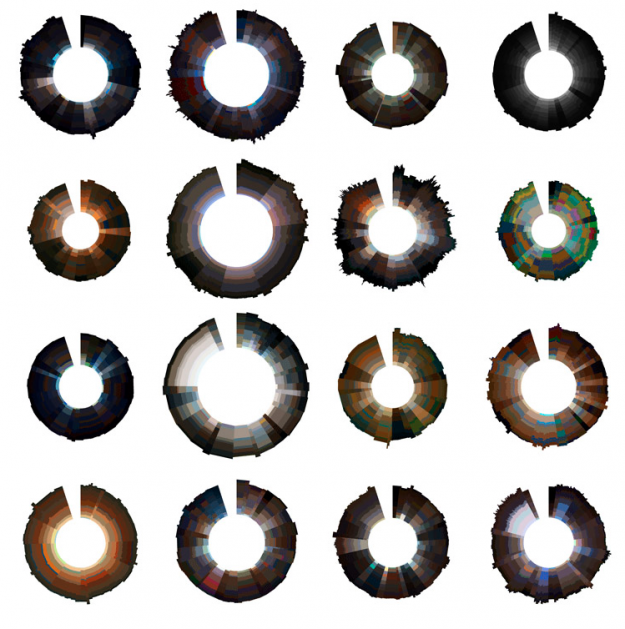Last week I was in Umea, Sweden at the HumLab run by Patrik Svensson. I gave a paper on “Making theoretical things in the digital humanities.” While wandering around Umea I came across an amusing conceptual art shop – Flux Shop – Erase the boundary between art and life. The shop is a front for an ad firm, but you can buy conceptual art and I ordered a work.
Voyant at Georgia Tech
Today I Skyped into a class by Lauren Klein on Digital Humanities at Georgia Tech. The students all had to use Voyant for an assignment and they had a great set of questions to ask me. See Questions for Professor Rockwell.
Klein also had her students post short essays on using Voyant on Sherlock Holmes under the category Sherlock Holmes Text Analysis. You can see the range of reactions from frustration with the tool, to “so what”, to students who find the “surfing and stumbling” creative. I’m impressed at how Professor Klein has put together a reasonable exercise in text analysis for undergrads.
In the spirit of Voyant, here is a word cloud of the student assignments on the course blog:
The machine in time: In honour of Tito Orlandi
Domenico pointed me to an entry on InfoLet (a blog he and others keep in Italian on informatics and literature.) The entry announces a book La macchina nel tempo: Studi di informatica umanistica in onore did Tito Orlandi that brings together many of the top digital humanists in Italy to celebrate Tito Orlandi’s contribution to the field. You can order online at http://www.lelettere.it. Continue reading The machine in time: In honour of Tito Orlandi
The Digital Humanities and the Revenge of Authority
That has always been my aim, and the content of that aim — a desire for pre-eminence, authority and disciplinary power — is what blogs and the digital humanities stand against.
Stanley Fish in his blog post on The Digital Humanities and the Transcending of Mortality starts by setting himself up as an example of what the digital humanities stands against. We know that his tongue is in his cheek because he prefaces this aim for authority by mentioning David Lodge’s character Morris Zapp “whose ambition, as his last name suggests, is to write about a topic with such force and completeness that no other critic will be able to say a word about it.” It is a lovely move that he returns to at the very end when he reminds us that we are reading a “column, oops, I mean blog.” He can disarm his critics by mocking the authority he really has while using it. That authority comes from, among other things, writing a column/blog in the New York Times. Fish is a slippery Zapp, and he knows it.
Continue reading The Digital Humanities and the Revenge of Authority
Staff to be banned from sending emails
“The deluge of information will be one of the most important problems a company will have to face (in the future). It is time to think differently.” Reading useless messages is terrible for concentration, as it takes 64 seconds to get back on the ball after doing so, according to a recent study by the social and business responsibility watchdog ORSE. “Poorly controlled, the email can become a devastating tool,” it warned.
There is more and more criticism of email and how it can distract you. Here is an article from the Telegraph about a French company where Staff to be banned from sending emails. What is interesting is that the CEO of Atos is advocating using instant messaging and a Facebook-like social network. This is supposed to be less distracting.
WordSeer
Stéfan pointed me to Berkley WordSeer a text analysis tool “that includes visualizations and works on the grammatical structure of text.” You can watch the video with Aditi Muralidharan talking about the project. She sees the problem with traditional search being the way keyword reading models texts as a bag of words. What we can’t do is model text as sentences. In other words she wants to leverage natural language processing to enhance search so you can see how “God” is described or what she/he has done. There are also some visualization tools like a heat map and word tree.
There is a nice YouTube video demoing how to use WordSeer to explore “beautiful” in Shakespeare.
Cinemetrics creates a visual fingerprint for movies
Thanks to Stan I cam across this visualization of movies, Cinemetrics creates a visual fingerprint for movies. You really have to look at the animated video to understand the visualization as an important part is the animation of the segments. The more action in a segment the more it moves giving the viewer a way to see where the action is and to compare movies.
In evaluating digital humanities, enthusiasm may outpace best practices – Inside Higher Ed
Inside Higher Ed has a story by Steve Kolowich about the essays we published in the MLA journal Profession on evaluating digital scholarship. The story, The Promotion That Matters (Jan. 4, 2012) quotes my essay On the Evaluation of Digital Media as Scholarship about how the problem is now how to practically review digital scholarship if you have no experience with it (and are on a tenure and promotion committee.)
It’s interesting how the article begins with what is becoming a trope – that the digital humanities is the new new thing. This time we have no lesser pundit than Stanley Fish proclaiming the arrival of new newness. Kolowich opens the essay (which is mostly about evaluation) by talking about how Fish, the “self-appointed humanities ambassador”, says the digital humanities has replaced postmodernism as the next thing. Its a nice way to open a story on the digital humanities and I suspect we will see more of this opening for a year or two. (What will it mean when people can’t start their stories this way?)
As for Fish, check out his blog post on the MLA, The Old Order Changeth (Dec. 26, 2011). The essay is based on reading the program (rather than attending) and he notices, among other things, all the digital humanities sessions. As he puts it, after reminding us what it was like when postmodernism was the rage,
So what exactly is that new insurgency? What rough beast has slouched into the neighborhood threatening to upset everyone’s applecart? The program’s statistics deliver a clear answer. Upward of 40 sessions are devoted to what is called the “digital humanities,” an umbrella term for new and fast-moving developments across a range of topics: the organization and administration of libraries, the rethinking of peer review, the study of social networks, the expansion of digital archives, the refining of search engines, the production of scholarly editions, the restructuring of undergraduate instruction, the transformation of scholarly publishing, the re-conception of the doctoral dissertation, the teaching of foreign languages, the proliferation of online journals, the redefinition of what it means to be a text, the changing face of tenure — in short, everything.
I’m intrigued by the possibility that the digital humanities might sweep through with the same arrogance that theory did. (Did it?) Is DH the same sort of new new thing? Fish lists some of the symptoms we might see if the digital humanities drives through like another revolution:
Those who proclaimed the good news in 20-minute talks at the convention welcomed the dawning of a brave new world; those who heard them with dismay felt that the world they knew and labored in quite happily was under assault, and they reacted, in counterpoint 20-minute talks, by making the arguments defenders of an embattled regime always make: it’s just a passing fad; everything heralded as new can be found in Plato and Aristotle; what is proclaimed as liberating is actually the abandonment of reason and rigor; a theory that preaches the social construction of everything collapses under its own claims; the stuff is unreadable; it has no content apart from its obfuscating jargon; maybe it will just go away.
I hope Fish is wrong. My hope is that colleagues not interested in the digital realize that we are not threatening to replace other forms of scholarship so much as to extend it. Digital practice does not deconstruct other practices/theories/methodologies, it supplements them and re-engages them. From the perspective of practice one of the things that exemplifies the digital humanities is that it is often experienced in projects that bring together “traditional” scholars and digital humanists rather than develop as a confrontation. Some of the more enthusiastic may think that the digital humanities can replace the practices of the last generation and in some cases the digital humanities does raise new questions, but the history of computing in the humanities has never been confrontational. (Instead, I would argue that the digital humanities has been a little too servile, pretending that all we wanted to do was bring new methods to old problems.) Our disciplinary history is that of a prosthesis or monster stitched from the old and the new. For that reason I doubt we will be the same sort of new new thing that postmodernism was. We don’t pretend to attack the foundations of the humanities so much as to extend them. We need our colleagues rather than despise them. We spend our time reaching outside of the humanities rather than gazing into its navel.
No … the danger is not that the digital humanities will try to deconstruct what came before, but that it introduces a new form of busy-ness to the humanities that distracts humanists from whatever is truly important. (And we all know what that is … don’t we?) The digital humanities is endlessly complicated, especially because it draws limbs from alien fields like the sciences and engineering. DH introduces new jargon, new languages (as in programming languages), new techniques, new practices, and new communal projects. All of this newness will keep us busy keeping up. All this newness will seem too much for many who haven’t the time to embrace something so time-consuming no matter how friendly. Many will keep quiet for fear that others think they are stupid because they don’t get computing when really they haven’t the time to do both the old, the new and the new new. Others will practice some cute put down just like all the cute ways we put down other movements we haven’t the time to master. Most will just feel the hug of the digital is a bit too friendly and a bit too tight. They will wait it out until one day something else will be announced as the new form of new new.
So what do I mean by busy-ness being the danger rather than replacement? Busy-ness is my word for the danger of constant activity Heidegger saw in “The Age of the World Picture” though there is something envious and cynical to his characterization of this technical turn. It is the danger of hyperpedantry when you perform the activities of wisdom faster and faster rather than thinking through wisdom. It really isn’t a new danger (Plato, of course, also warned us about this.) It is the danger that those tired of being left behind warn others about in the hopes they will slow down. It is a danger too often voiced by the grant envious which means we don’t listen too them. Here is Heidegger on it,
The decisive unfolding of the character of modern science as constant activity produces, therefore, a human being of another stamp. The scholar disappears and is replaced by the researcher engaged in research programs. These, and not the cultivation of scholarship, are what places his work at the cutting edge. The researcher no longer needs a library at home. He is, moreover, constantly on the move. He negotiates at conferences and collects information at congresses. He commits himself to publishers’ commissions. It is publishers who now determine which books need to be written.
From an inner compulsion,the researcher presses forward into the sphere occupied by the figure of, in the essential sense, the technologist. Only in this way can he remain capable of being effective, and only then, in the eyes of his age, is he real. Alongside him, an increasingly thinner and emptier romanticism of scholarship and the university will still be able to survive for some time at certain places. (p. 64, from the collection Off the Beaten Track, trans. by Julian Young and Kenneth Haynes.)
Whatever Heidegger says, I believe it is impossible to distinguish between busy-ness and whatever is considered “real work” or real scholarship. The difference is ineffable, but that is not why busy-ness is a danger to the digital humanities. Busy-ness is the danger because it is the other of technical activity. Practical activity is what the humanities needs after theory, but also what it will tire of. At the very moment when we think the digital humanities has made a pragmatic difference we will worry that there is no meaning to all the technique. The digital humanities will not be critiqued as another replacement or another post post; it will exhaust itself and be found empty. The rhetoric will turn to wisdom and away from best practices.
Debates in the Digital Humanities
 The University of Minnesota Press has published Debates in the Digital Humanities, a collection edited by Matthew K. Gold that I contributed to. Stephen Ramsay and I co-wrote a chapter titled, “Developing Things: Notes toward an Epistemology of Building in the Digital Humanities.”
The University of Minnesota Press has published Debates in the Digital Humanities, a collection edited by Matthew K. Gold that I contributed to. Stephen Ramsay and I co-wrote a chapter titled, “Developing Things: Notes toward an Epistemology of Building in the Digital Humanities.”
Responding To Surfdom
The internet has revolutionised humanities research. But has the development of ever-more sophisticated online resources freed up scholars to explore new ideas, or made them slaves to the digital machine?
This is the start of the Matthew Reisz article in Time Higher Education titled Surfdom which asks questions about the digital humanities. I was sufficiently annoyed when I read the article that I sent a response to the Humanist Discussion Group, Responding To Surfdom. I’ve now posted the response to my wiki here. Reisz raises questions about whether digitization is driving scholarship. He doesn’t really elaborate on the questions raised, but they are important to think through anyway.


